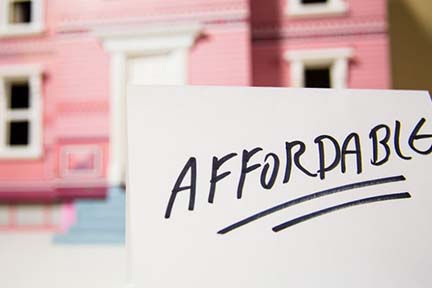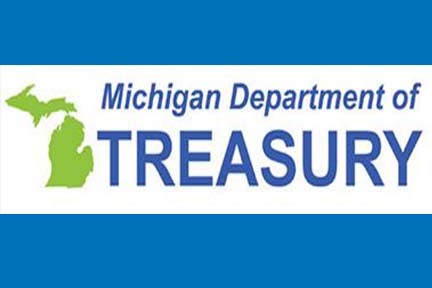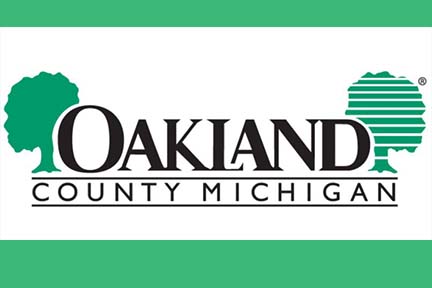
Bold New Housing and Energy Initiatives to Lower Costs

FOR IMMEDIATE RELEASE
May 29, 2024 Contact: press@michigan.gov
Governor Whitmer Announces Bold New Housing and Energy Initiatives to Lower Costs for Michigan Michigan increases housing goal and announces programs to lower home energy costs for 28,000 families, helping more Michiganders reach their dreams of owning a home
LANSING, Mich.– At the Mackinac Policy Conference today, Governor Gretchen Whitmer announced significant strides in housing and energy initiatives, continuing Michigan’s national leadership in leveraging climate and clean energy-related federal funding. This includes raising the state’s five-year housing production goal by over 50% and investing federal funds to lower energy costs for 28,000 low-income households through the Solar for All and Home Energy Rebate Programs. The initiatives will lower housing and utility costs for Michiganders and will put the state closer to achieving the goals of the MI Healthy Climate Plan. The initiatives will lower housing and utility costs for Michiganders and will put the state closer to achieving the goals of the MI Healthy Climate Plan. “Together, we’re going to lower housing and energy costs for Michiganders,” said Governor Whitmer. “By raising our statewide housing goal to 115,000 units, we will build more housing to drive down costs and ensure every Michigander has a safe, affordable place to call home. Thanks to our partners in the Biden-Harris administration, we have federal resources headed our way to lower energy costs for Michigan families by helping them upgrade to more energy efficient home appliances and install solar panels on their homes or in their community to save them money on their utilities. These upgrades will keep families cool in the summer, warm in the winter, and improve their quality of life. Let’s keep taking action to lower costs on housing and energy, two fundamental issues that make a real difference in people’s lives.” Governor Raises State’s Five-Year Housing Production Goal by Over 50% Since Governor Whitmer office, the Michigan State Housing Development Authority (MSHDA) has invested twice as much compared to the last administration to build, rehab, or finance 34,000 homes, supporting 20,000 jobs. At the 2021 Mackinac Policy Conference, the governor set a goal of permitting, building, or rehabbing 75,000 additional units in five years—by September 2026. Currently, Michigan is ahead of schedule with nearly 50,000 units built, rehabbed, or permitted. Today, the governor raised Michigan’s five-year statewide housing target to 115,000—a 53% increase. This pushes Michigan closer to the goal of ensuring everyone has access to the middle class, starting with homes and utilities they can afford. “We are celebrating our hard work in funding $1.23 billion to finance, build, and rehab thousands of homes in the last year while recognizing that we need to raise the bar higher to end the housing crisis for Michigan families,” said Amy Hovey, CEO and Executive Director of MSHDA. “We’re committed to listening to our local and regional partners, moving quickly with creative solutions, and working hard to make communities and neighborhoods better.” In addition to investing unprecedented new resources, MSHDA has been implementing the Statewide Housing Plan in partnership with the members of the Statewide Housing Partnership and the local and regional leaders of each of the Regional Housing Partnerships. That work has led to new investments from the state legislature, solutions that eliminate unnecessary burdens and red tape on developers and local governments, and collaboration in support of making neighborhoods and communities stronger.
Recent MSHDA innovations include:
Michigan Brings Home Millions in Federal Dollars to Lower Energy Costs Governor Whitmer also announced today that Michigan has brought home $367 million from the US Department of Energy’s Home Energy Rebates and the U.S. Environmental Protection Agency’s Solar for All programs to lower energy costs for Michiganders. This funding aims to cut monthly bills for 28,000 homes, help more than 18,000 low-income households install solar on their roof or in their community and install energy efficiency measures, and reduce the cost of new energy-efficient appliances for over 10,000 working families. The Michigan Department of Environment, Great Lakes, and Energy (EGLE) will administer these new programs.
“Our new Home Energy Rebate and MI Solar for All Programs, made possible by the Inflation Reduction Act, will lower energy costs for thousands of households across the state while helping implement the MI Healthy Climate plan, the state’s climate action roadmap,” said Phil Roos, EGLE Director. “Expanding access to renewable energy, energy efficiency, and efficient appliances is a critical step, particularly for our low-income and environmental justice communities, towards reducing pollution, protecting our world-class natural resources, and lowering energy costs for families. These investments will create a positive and lasting impact for Michiganders today and tomorrow.”
Michigan received just over $210.8 million for the state’s Home Energy Rebate Programs. Of this total, $105.6 million is allocated for the Home Efficiency Rebates and $105.2 million is allocated for the Home Electrification and Appliance Rebates. The Home Efficiency Rebates provide funding to lower the upfront cost of whole-home energy efficiency upgrades in single-family and multi-family homes aiding retrofitting and electrification efforts. The Home Electrification and Appliance Rebates help finance the upfront cost of efficient electric technologies and appliances in single-family and multi-family homes. These resources will be available to families this fall.
Michigan recently celebrated a historic $156 million investment to accelerate the deployment of affordable renewable energy for thousands of low-income households across the state. This initiative, known as the Michigan Solar for All (MISFA) program, aims to reduce utility costs for families, foster job creation, and strengthen Michigan’s advanced clean energy sector—all while moving the state toward its MI Healthy Climate Plan goals. MISFA is expected to make a substantial impact by providing low-income households across Michigan access to affordable renewable energy and enabling home repairs, reducing energy bills by up to 20% and providing additional meaningful benefits. These dollars will be available to Michigan families in the summer of 2025.
“Everyone deserves to make it in Michigan, and that means ensuring housing and energy are more affordable so Michiganders have money in their pockets to provide for their families,” said Zachary Kolodin, Michigan’s chief infrastructure officer and director of the Michigan Infrastructure Office. “We’re committed to harnessing federal dollars to create a robust housing plan and invest in clean energy. By doing so, we’re making renewable energy more accessible, decreasing the cost of living, creating good-paying jobs, and growing the economy.” |



 May 29, 2024
May 29, 2024




